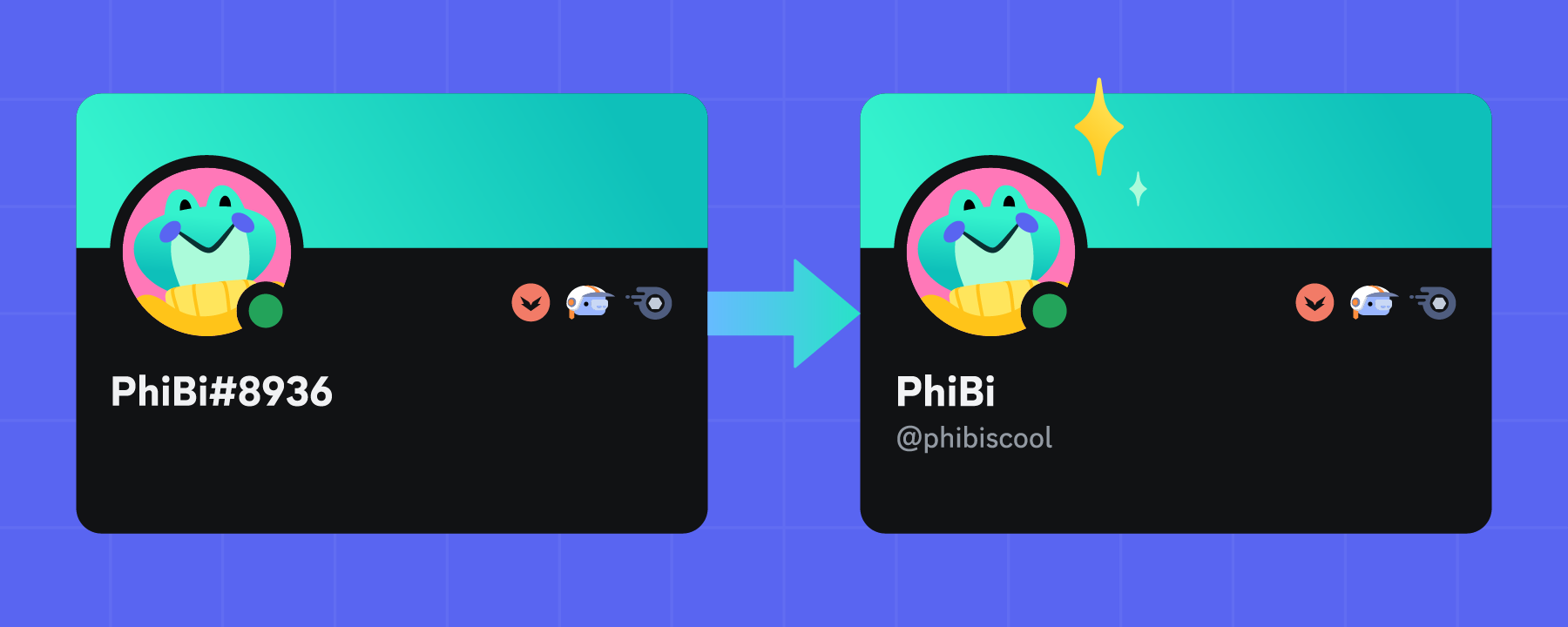
Popular chatting and streaming app Discord has been making every one of its users change their names, and you could be forgiven if you wondered why such a disruptive step was taken at all. But the platform’s founders say it’s more necessary than you think.
Typically, Discord users are identified by a name and a random number separated by a hash – like MinaHarker #1897. Originally, it could have been MinaHarker, explains co-founder Stanislav Vishnevsky, since they didn’t ask for unique names (you were just joining a friend’s channel), But later when they needed to distinguish users with identical names, they added a “distinguished” four-digit number.
As Discord grew, this same system remained in place, but it wasn’t ideal for sharing outside of Discord. Meet someone in real life and you can say, “I’m @BigDraculaEnergy on Instagram” or whatever. But few people remembered their four-digit number or actually capitalizing their name on Discord, which is really important.
“Well, find out,” she says, but the problem is that not many people have: “Almost half of friend requests fail to connect the user with the person they wanted to match with, often because users entered wrong or Vishnevskiy types.” Other problems were common as well. This kind of friction and frustration is bad news for a growing community trying to reach new audiences.
So, after a long discussion, the team decided on an approach that would be familiar to social network users: a unique username, plus a display name that is freely customizable and can be changed at any time.

The illustration shows before and after your Discord username and display names. Image credits: disagreement
The problem is simply this: even though there is already a name, everyone will now need to choose a new name, which may or may not be similar to the old one.
If our friend MinaHarker #1897 wanted to cut her name off, she might find that others have already done so, and though she used to be known only by her name, she now has to change something, maybe add periods, underscores, or numbers (only other characters allowed). It can certainly be argued that m1na_h4rk3r is more difficult to say or find than MinaHarker #1897. And with hundreds of millions of users previously having whatever name they wanted, you can be sure that this type of conflict will be fairly common.
Users are understandably upset about the change. Looking for friends can be awkward and often unsuccessful. But this is a temporary inconvenience – you ask your friend again or check and find the right one. How about this can’t be fixed by a smarter search function to help differentiate between Jonathan #6733, Jonathan #7633, and Jonathan #3367?
In solving some problems, it also presents others – which will also be familiar to social media users. For example, how will Discord ensure that notable people on the internet are not targeted by impersonators? Every platform is in a constant battle with impersonators, and one can hardly expect the average user to know whether it is ninja or ninja_ that they want. (And after all, why wouldn’t an actual ninja take on one of those names?)
Others pointed out that Discord channels were great for automated functions (like creating a Midjourney pic, massive community there) and friendly bots, which might be broken or require serious rework to work under the new conditions. Capturing a single world title may not be everyone’s cup of tea either. Do I want to be known by the same nickname on my K-Drama channel as I am on my racing sim channel?
The company hopes to avoid acrimony with slow rollouts and prioritize usernames for people who have been on the platform the longest. But those users are likely the most nervous, since they joined when Discord was a relatively no-frills chat app for other gamers and communities — this steady creep toward being a full-fledged social network may eventually lead them to explore alternatives.
